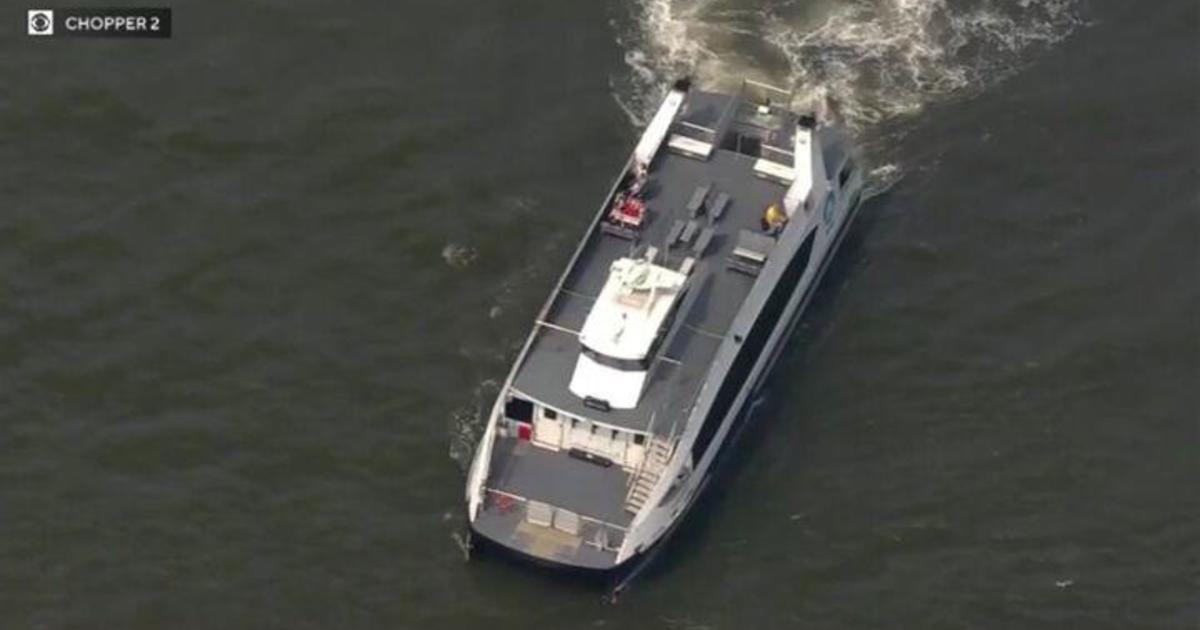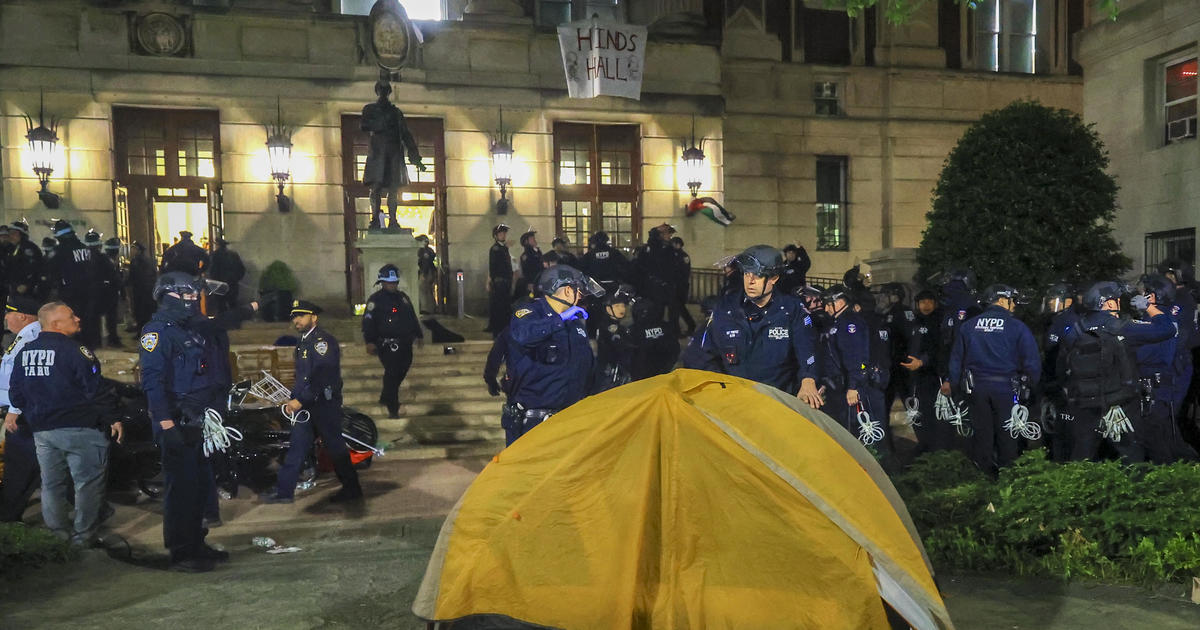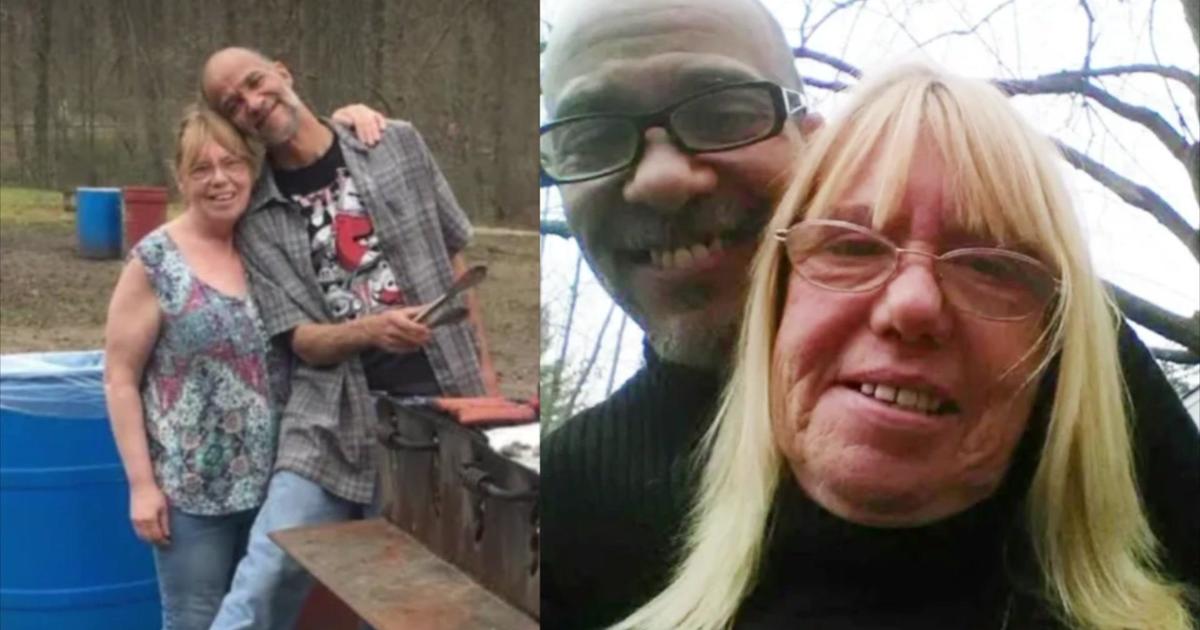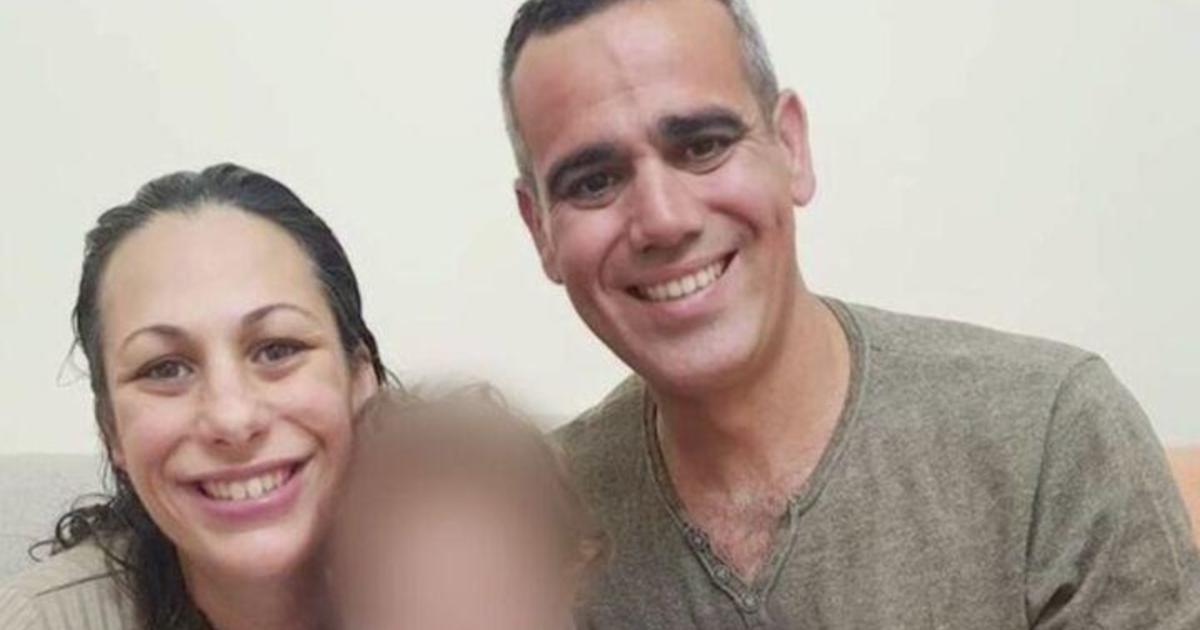Verizon Using Fire Island To Test Getting Rid Of Landline Phones
FIRE ISLAND, N.Y. (CBSNewYork/AP) -- As full-time residents on Fire Island try to get life back to normal following Hurricane Sandy, Verizon Communications is using the barrier island as a test case in eliminating landline telephones.
"We're extremely vulnerable. You need the security of a landline," one resident said.
As CBS 2's Jennifer McLogan reported, Sandy submerged parts of Fire Island, destroying underground copper wiring. As a result, home service telephone transmission to the barrier beach was cut.
Instead of costly replacement, Verizon is using Fire Island as test case, offering all 300 permanent residents and dozens of businesses a wireless alternative it calls Voice Link.
But data and Internet access come at a monthly price.
Locals complain they're now without faxes and alarm systems.
"I feel that they left us hanging with no real options to get our business back up and running," restaurant owner Jon Randazzo told McLogan.
Without a landline, Randazzo had no way to process credit cards and was forced to do it manually using his cellphone.
Verizon repaired landlines within the fire department, police department and emergency services, but some homeowners fear they wont be able to call 911 because cell service is erratic and Voice Link has been unreliable.
"It's sketchy, to say the least," Mayor James Mallott told McLogan of voice link.
Verizon said landlines are growing obsolete, and noted that 80 percent of Fire Islanders use cellphones only.
"It's a proven, reliable technology. I think it'll serve the customers well," Thomas Maguire of Verizon Communications said.
If the Federal Communications Commission approves Voice Link as a substitute on Fire Island, Verizon is expected to roll up the copper for its 10 million customers still using traditional landlines.
"Your phones go out, how do we call for help? How?" a Fire Island resident wondered.
As a public company responsible to shareholders, Verizon may have no other choice but to forgo copper and go wireless.
Storm-ravaged Mantoloking, N.J. is also part of Verizon's test program, since its copper wiring system was also largely destroyed during Sandy.
The number of U.S. phone lines peaked at 186 million in 2000. Since then, more than 100 million copper lines have already been disconnected, according to trade group US Telecom. The lines have been supplanted by cellphones and Internet-based phone service offered by way of cable television and fiber optic wiring. Just 1 in 4 U.S. households will have a copper phone line at the end of this year, according to estimates from industry trade group US Telecom. AT&T would like to turn off its network of copper land lines by the end of the decade.
For most people, the phone line's demise will have little impact. But there are pockets of the country where copper lines are still critical for residents. As a result, state regulators and consumer advocates are increasingly concerned about how the transition will unfold.
Verizon says replacing the lines just doesn't make economic sense. When they were originally laid down, the phone was the only two-way telecommunications service available in the home, and the company could look forward to decades of use out of each line. Now, it would cost Verizon hundreds of dollars per home to rewire a neighborhood, but less than a quarter of customers are likely to sign up for phone service and many of those drop it after a year or two.
"If we fixed the copper, there's a good likelihood people wouldn't even use it," says Maguire.
There's no cable service on Fire Island, making it more dependent on Verizon than Mantoloking, where residents can get phone and Internet service from Comcast by cable. The surviving copper phone lines on Fire Island often double as DSL, or digital subscriber line, Internet connections. As a result, Randazzo's restaurant, The Landing at Ocean Beach, lost Verizon Internet service for a weekend last month, leaving it without a way to process credit cards. The line started working again after four days, but he's afraid it will go out again for good.
"I had to have my waiters write down the credit-card number, the expiration number and the CVV (security) code. It took me over three and a half hours to process all my credit cards on Saturday. That's pretty ridiculous," Randazzo says.
New York state regulators have given Verizon provisional permission to consider its wireless Voice Link boxes as stand-ins for regular phone service. Verizon technicians install the 4-inch square boxes with protruding antennas in homes and connect them to the home phone wiring. The home is then linked to Verizon's wireless network. When subscribers lift their phone handsets, they hear a dial tone. But the box doesn't work with remote medical monitoring devices, home alarm systems or faxes. It can't accept collect calls or connect callers with an operator when they dial 0. It also can't be used with dial-up modems, credit-card machines or international calling cards.
Verizon says just 855 of the 3,000 homes it wants to abandon in Mantoloking had traditional phone service before the storm hit.
In other areas, Verizon is replacing copper phone lines with optical fiber, which allows the company to offer cable-like TV services and ultrafast broadband. Water can short out and corrode copper wire, but optical fiber is made of glass and transmits light rather than electricity, so it's far more resistant to flooding. But the cost of wiring a neighborhood with fiber optic lines can run more than $1,000 a home.
"Everybody would love for us to put in fiber, but that's just not practical," Maguire says.
If New York and New Jersey refuse to give permanent permission for the switch from landline to wireless phone service, Verizon could be forced to rebuild the phone network on Fire Island and in Mantoloking. Unlike cable and wireless companies, landline phone companies have regulatory obligations in most states to supply lines at a reasonable cost to anyone who wants one. They also need federal approval to end service.
In late June, New York State Attorney General Eric Schneiderman filed an emergency petition with state regulators to stop Verizon from replacing copper lines with alternatives in the Catskill Mountains of upstate New York. He says seasonal residents who find their phone lines don't work at their summer homes are steered by Verizon to its Voice Link wireless product. Only if the customer forcefully refuses will Verizon restore the copper phone line, he says. Verizon says Voice Link is just an option available to customers.
In New Jersey, state regulators are talking to Verizon about Mantoloking but haven't approved the landline-to-wireless switch that Verizon has already started. It could, at least in theory, deny Verizon's application and force it to rewire copper phone lines back into the town.
In Washington, the FCC is looking at an application from the country's largest landline phone company, AT&T Inc. AT&T isn't dealing with storm damage, so it has the leisure of taking a longer view. It wants to explore what a future without phone lines will look like by starting trials in yet-to-be-decided areas.
If a major telecommunications line fails and there are hundreds of people connected to it, Verizon would repair it, he says. But the company wants the option to abandon the failed line and move the remaining households to Voice Link.
"If you're one of the few people on there, and Voice Link seems to fit you, why not?" Maguire asks.
You May Also Be Interested In These Stories
(TM and © Copyright 2013 CBS Radio Inc. and its relevant subsidiaries. CBS RADIO and EYE Logo TM and Copyright 2013 CBS Broadcasting Inc. Used under license. All Rights Reserved. This material may not be published, broadcast, rewritten, or redistributed. The Associated Press contributed to this report.)



